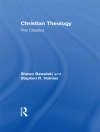“But what is liberty without wisdom, and without virtue? It is the greatest of all possible evils; for it is folly, vice, and madness, without tradition or restraint.”— Edmund Burke
Edmund Burke’s Reflectionson the Revolution in France (1790) is the undisputed foundation of modern conservatism. It is a brilliant pamphlet against the French Revolution, one rooted in the solid ground of a practical political philosophy. Burke’s central argument is that the French Revolution was driven by a utopian egalitarianism, which was dangerously disconnected from the actual experience of politics. A conservative, he grants centrality to the practical rationality of existing socio-political traditions and institutions, criticizes radical changes at all costs, and advocates gradual political reforms.
A propos de l’auteur
Edmund Burke was an outstanding politician, polemicist, and political thinker, as well as a theorist of aesthetics and literature. Born in Dublin in 1729, he graduated from Trinity College in 1748. From there, he moved to London with the intention of studying law at the Inns of Court, but soon abandoned his studies to pursue a career in literature. Soon he was moving in the artistic circle of Joshua Reynolds, Samuel Johnson, David Garrick, and Oliver Goldsmith.. In 1756, Burke published
A Vindication of Natural Society, a satire that took issue with the rationalist principles of the Enlightenment. In 1757, he wrote a short treatise that laid the groundwork for a new conception of aesthetics that would influence, among others, Immanuel Kant.












